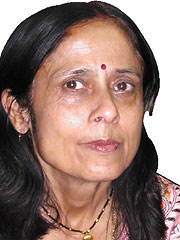I am 32 years old and not married. I was in a relationship before but it ended a year ago. Of late, I have this urge to have a baby, with or without a husband. I was thinking about artificial insemination though my friends say it is risky.


Dear Doctor,
I am 32 years old and not married. I was in a relationship before but it ended a year ago. Of late, I have this urge to have a baby, with or without a husband. I was thinking about artificial insemination though my friends say it is risky. How? Are their health risks involved? If there is anything you can tell me, I would greatly appreciate it. I also worry about hitting menopause before having a baby. I mean there is such a thing as early menopause right?
Rita
Dear Rita
You are just 32 years old and at this age you have almost a decade of life before you to find a suitable partner and conceive children naturally. What is needed is just one successful intercourse and nine months of gestation period before delivering a baby.
Artificial insemination is usually used for couples who fail to produce a child by natural normal intercourse. The problem may lie with the husband (low sperm count or poor sperm quality) or with the woman (cervical mucus may be hostile to the semen it receives, thus preventing fertilisation) or diseases of the uterus or fallopian tubes.
In artificial insemination, a sample of semen is collected by masturbation on the spot or frozen semen can be used. This is then, "washed” i.e. processed in such a manner that only the most active sperms can be used. Through a thin tube, this washed semen is injected directly in the cervix, uterus or fallopian tubes of the woman at the time of ovulation.
She is asked to lie down straight for about half an hour or so, to ensure that semen is retained and fertilisation follows.
If the partner has semen of poor quality, it is used, but in cases where there may be no sperms at all, sperms from a donor can also be used. This donor can be anonymous or a known person, depending on the choice of the clinic, existing laws about artificial insemination and choice of the couple. If this fails on three consecutive attempts, advanced fertility treatment methods like vitro fertilisation are used.
As such artificial insemination is very beneficial for couples who desire a child but are unable to produce one of their own. The success rate is also good, unless the woman has some other disease process preventing conception. It is a very safe procedure. After artificial insemination, a woman may experience some lower abdominal pain and or cramps. At times, there may be mild vaginal bleeding. If utmost hygiene has not been maintained during the procedure, there is potential risk of pelvic inflammatory disease.
Rarely there may occur ovarian hyperstimulation syndrome (manifested by abdominal pain, swelling, weight gain, nausea, vomiting and oligurea) or multiple pregnancies after artificial insemination. This risk is greater if a woman has taken fertility treatment like the injection of HCG (human chorionic gonadotropin) before or with the artificial insemination.
Health issues apart, artificial insemination has ethical and social issues attached to it. Women are known to conceive even after menopause, because one may continue to have ovulatory cycles for sometime even after menses stop. Adoption is yet another very safe option for a woman unmarried but desirous of a child.
Some celebrity actresses have adopted children.
Dr. Rachna Pande is a specialist in Internal Medicine at Ruhengeri Hospital


